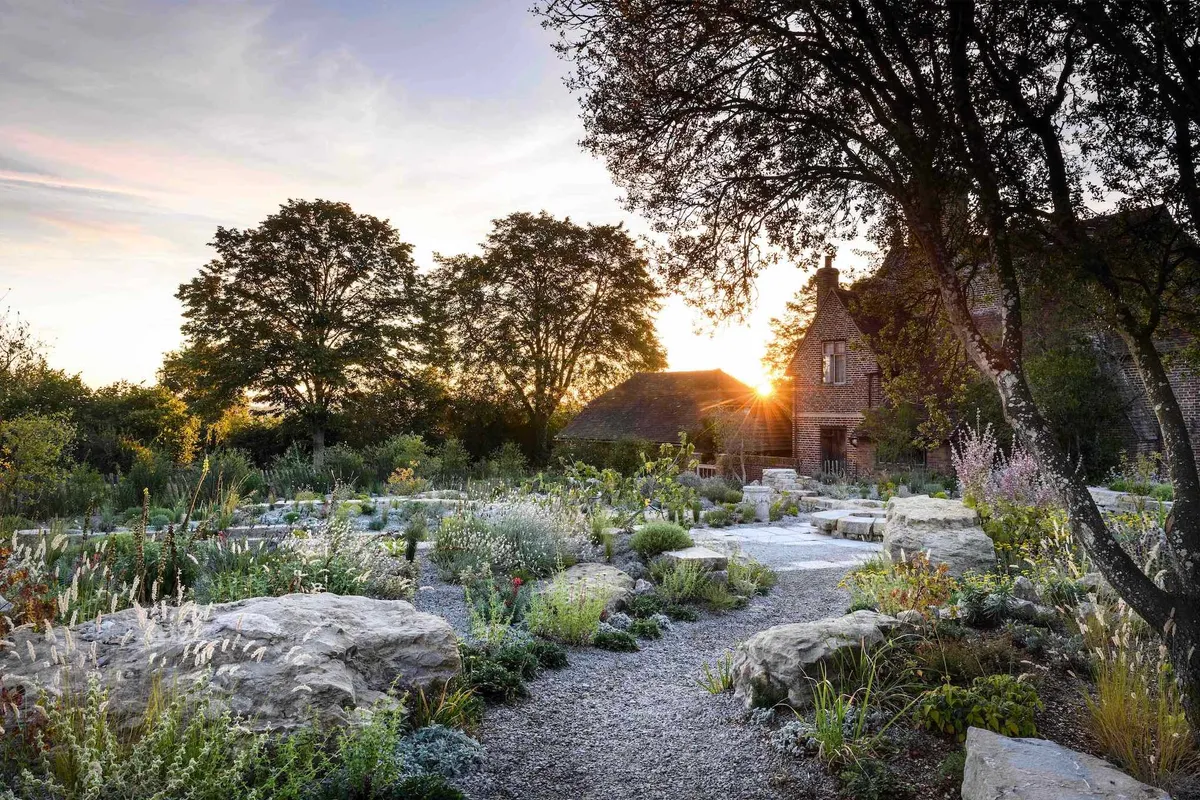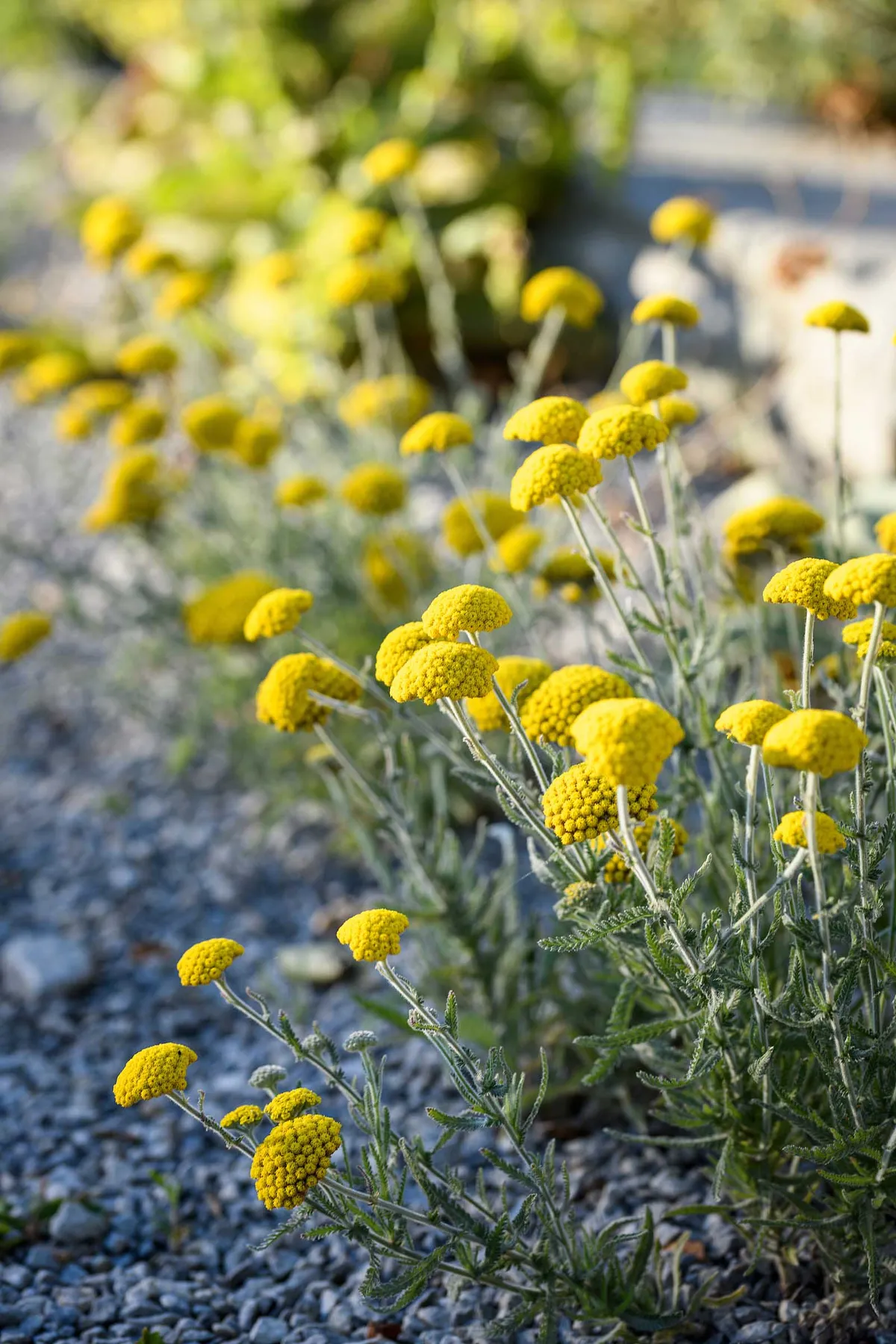Troy Scott Smith, head gardener of Sissinghurst Castle Gardens in Kent, has discussed his decision to no longer irrigate the beds and borders of the famous garden in the new podcast, Talking Gardens.
Asked about how it is possible to keep important heritage gardens such as Sissinghurst relevant in this new era, while also staying true to the original character of the garden, which was created in the romantic English style in the early 20th century by Vita Sackville-West and Harold Nicolson, Troy explains: “All of us great gardens like here and Great Dixter are facing the same set of questions, and we are answering them in different ways. I certainly don’t try and ‘method act’. That would be wrong. But equally we don’t try and keep the garden in aspic. It has to evolve and continue to be alive. A good example of that would be the Delos Garden.”

The new Delos garden is inspired by Vita and Harold’s attempts, back in the 1930s, to create a space that would distil the essence of the landscapes of the Greek isle of Delos. It is a dry garden, filled with Mediterranean, drought-tolerant plants, and this new incarnation was developed with the help and advice of lauded landscape designer Dan Pearson. Apart from hand watering to establish the plants, it is not been watered.
“But that’s not so unusual now,” explains Troy, “because we haven’t watered the rest of the garden either this year, apart from pots and newly planted things.” This bombshell is sure to raise a few eyebrows among garden lovers, who may expect a world-class garden such as Sissinghurst, which can receive more than 100,000 visitors a year, to have high-maintenance traditional watering, feeding and pest control regimens in place to ensure perfection at all times.
It’s tough, because the garden, by not watering, went brown this year. It was heartbreaking
Troy agrees that it is a real departure from what went before. “It’s incredible to think that at such a significant garden like Sissinghurst, we are making these interventions. And it’s tough, because the garden, by not watering, went brown this year. It was heartbreaking in parts.”
But he says, it has given the team an opportunity. “In taking that step in a very difficult year - we all know how dry it was - and to have that as a low point, we put in place lots of interventions and strategies so the garden can survive in periods of drought, and continue to look good.”
Asked how the visitors reacted to the dry, brown garden last summer, Troy is philosophical. “I think it’s actually been really well received. There was obviously the occasional disappointment - a few visitors have felt that Sissinghurst should be an oasis from the rest of the world, green and verdant when everywhere else isn’t - but in the majority, they really get it, understand it, and support the idea and the principle behind it.”

It's part of a broader shift in horticulture that is finally beginning to make a difference, he feels. “I have noticed it across the community. We are all gardening differently, quite naturally, and it feels like we are going into a good place. I have now been gardening for 35 years, and it’s different now to what it was 35 years ago, and in another 35 years, it will be different again, and we won’t be able to grow the roses and delphiniums and lupins, and have the green lawns that we used to have.
“I increasingly feel we have to look at our gardening practices and ask ourselves what is acceptable now, what is really needed?” Troy says. “It’s thinking about water use, our chemical use, and all of these things that we gardeners do.”
Discover more about Sissinghurst, Troy’s ethos and his dream garden picks by listening to the latest episode of the Talking Gardens podcast, available now from the team behind Gardens Illustrated. Subscribe so you never miss an episode.
Join our exclusive reader evening at the ultimate romantic garden. Enjoy a guided tour with head gardener Troy and wander the grounds at your leisure after visitors have left.
